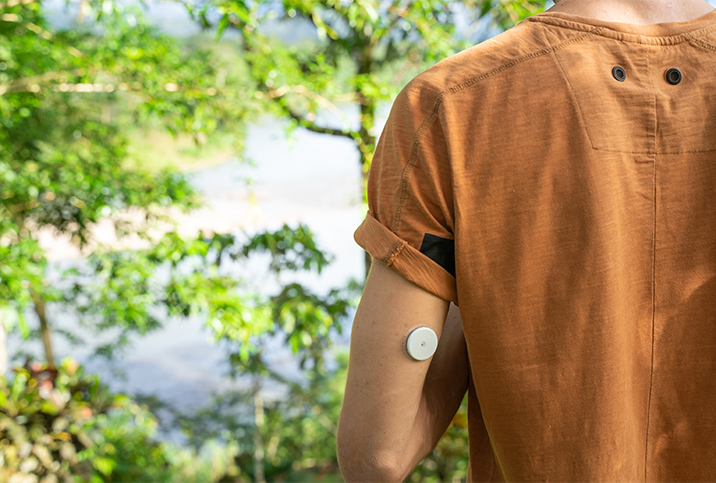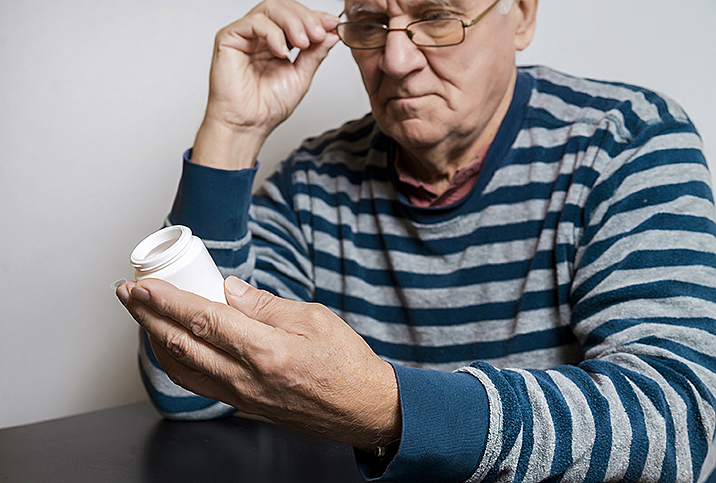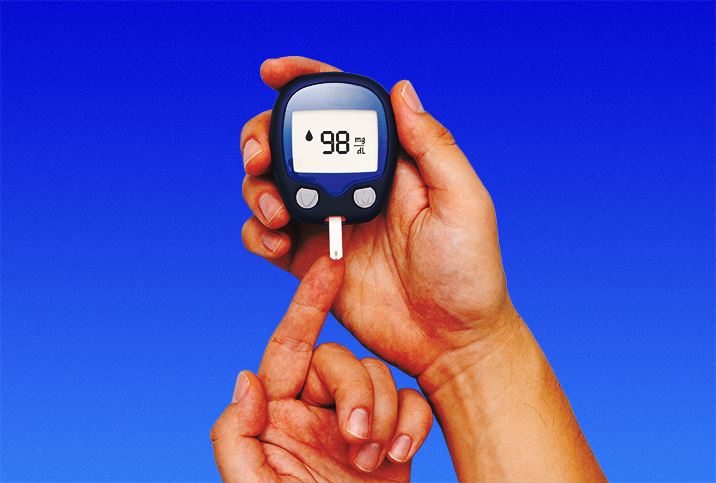Type 1 Diabetes and Erectile Dysfunction Are Closely Linked

Approximately 34.2 million people in the United States have diabetes. That represents 10.5 percent of the population, according to the Centers for Disease Control and Prevention's (CDC) National Diabetes Statistics Report 2020. Of the adults with diagnosed diabetes, 5.7 percent have type 1 diabetes mellitus (T1DM) and use insulin.
A study in the International Journal of Impotence Research looked at 151 men with diabetes and 60 men without diabetes. It found 37 percent of people with type 1 diabetes had erectile dysfunction (ED) compared with only 6 percent of those without the disease.
In fact, 35 percent to 75 percent of men with diabetes experience ED.
The effects of diabetes on erectile function should not be understated, said Justin Houman, M.D., a reproductive urologist and men's health specialist at Tower Urology in Los Angeles.
Find out how diabetes, particularly T1DM, can lead to ED, but first, a quick recap of what diabetes is and the differences between type 1 and type 2 diabetes.
What is diabetes?
Diabetes is a condition that causes people's blood sugar (glucose) levels to become too high. You get blood sugar from your diet; then a hormone called insulin, which is produced by the pancreas, helps glucose go from that food into your body's cells and converts it to energy.
However, people with diabetes cannot break glucose down into energy. Either they produce insufficient insulin or the insulin does not work correctly.
Diabetes manifests in various types. The two most common are:
- Type 1 diabetes mellitus. Your body's immune system attacks the cells in your pancreas that produce insulin, so it can't make insulin.
- Type 2 diabetes mellitus. Your body doesn't make enough insulin, or the insulin produced doesn't work correctly.
Another type is gestational diabetes, which can develop in some pregnant women. Less common types include monogenic diabetes (an inherited form of diabetes) and cystic fibrosis-related diabetes.
In a nutshell, T1DM is a genetic condition often diagnosed early in life with causes unknown, while T2DM develops over time and is usually lifestyle related.
Diabetes is a lifelong condition. You manage T1DM with insulin injections. T2DM can sometimes be managed through diet and lifestyle changes, but medication might eventually be necessary.
If uncontrolled, diabetes can cause damage to your cardiovascular system, nervous system, circulatory system, kidneys, eyesight and feet. Therefore, it's essential to check your blood sugar levels and keep them within a normal range advised by your physician.
How does T1DM lead to ED?
Diabetes can also cause sexual problems, including ED. Houman explained that diabetes can lead to a decreasing blood supply to various parts of your body, including the penis, if not controlled. It can also impact the nerves.
"Erections require both good blood supply and good nervous system functions. So uncontrolled diabetes can impact both the nervous system as well as the blood flow," he said. "It's not uncommon to see guys who have T1DM coming in and complaining of ED at a much younger age than men without diabetes."
Nerve damage can also affect how men feel when they get an erection and how strong the erection can be.
Essentially, chronic poor glucose control leads to diabetic neuropathy and also atherosclerosis (vascular disease), according to Ana Maria Kausel, M.D., a board-certified endocrinologist and the co-founder of Miami-based Anzara Health, a virtual concierge endocrinology practice.
"That is why it is important to manage diabetes and maintain blood sugar levels in the normal range, to reduce the risk of these and other complications," said Hana Patel, M.B.B.S., M.Sc., a private general practitioner and mental health coach in London.
Type 1 diabetes and ED vs. type 2 diabetes and ED
Although type 1 and type 2 diabetes are very different, their impact on ED is similar, according to Houman. They can affect the nerves in the penis or the blood supply to it, but the chronology and timing are different.
"Type 1 diabetes is a genetic issue that men experience for the course of their life, rather than type 2 diabetes, which usually develops later in life," he said. "And as a result, ED can happen much earlier for men with T1DM."
Managing diabetes-related ED
You may find it difficult to discuss ED with your doctor, but having the conversation can make a difference. There are many ways to manage ED; it's not something you just have to live with untreated. Here are a few topics you might want to discuss with your healthcare provider:
- Keep your diabetes under control. Talk to your care team and ensure your blood sugar levels are stable and you are doing everything correctly to manage the disease.
- Check your medications. Some medicines can cause or contribute to ED. Ask your doctor if any of the medications you're taking might be part of the problem.
- Discuss other health problems. See if any conditions you have may also cause ED.
- Choose a healthy lifestyle. Don't smoke, limit alcohol, eat a balanced diet and be physically active.
- Check your stress levels. Depression, stress and anxiety can worsen ED. If you are worried about your mental health or stress levels in your life, speak to a counselor.
- Explore treatments for ED. There are several treatment options for ED. They range from medication to vacuum or constriction devices, such as Eddie® by Giddy, to surgical penile implants. Chat with your doctor about the best treatment options for you.
As Houman said, it's common for men with diabetes to experience ED. Clinicians are used to the conversation and are available to help.


















